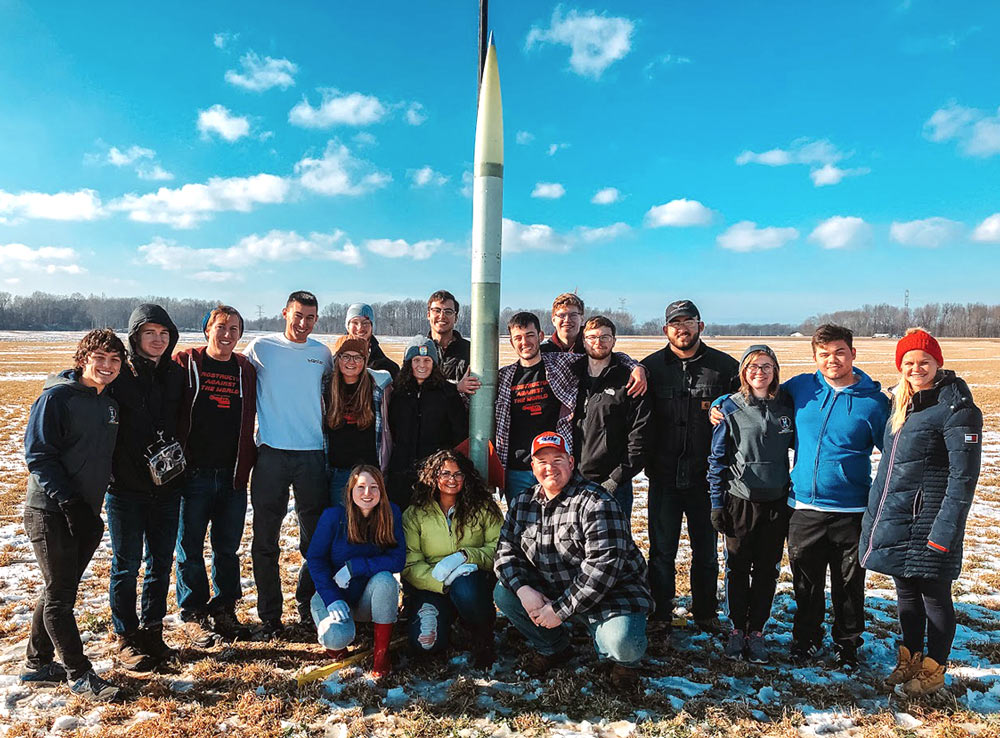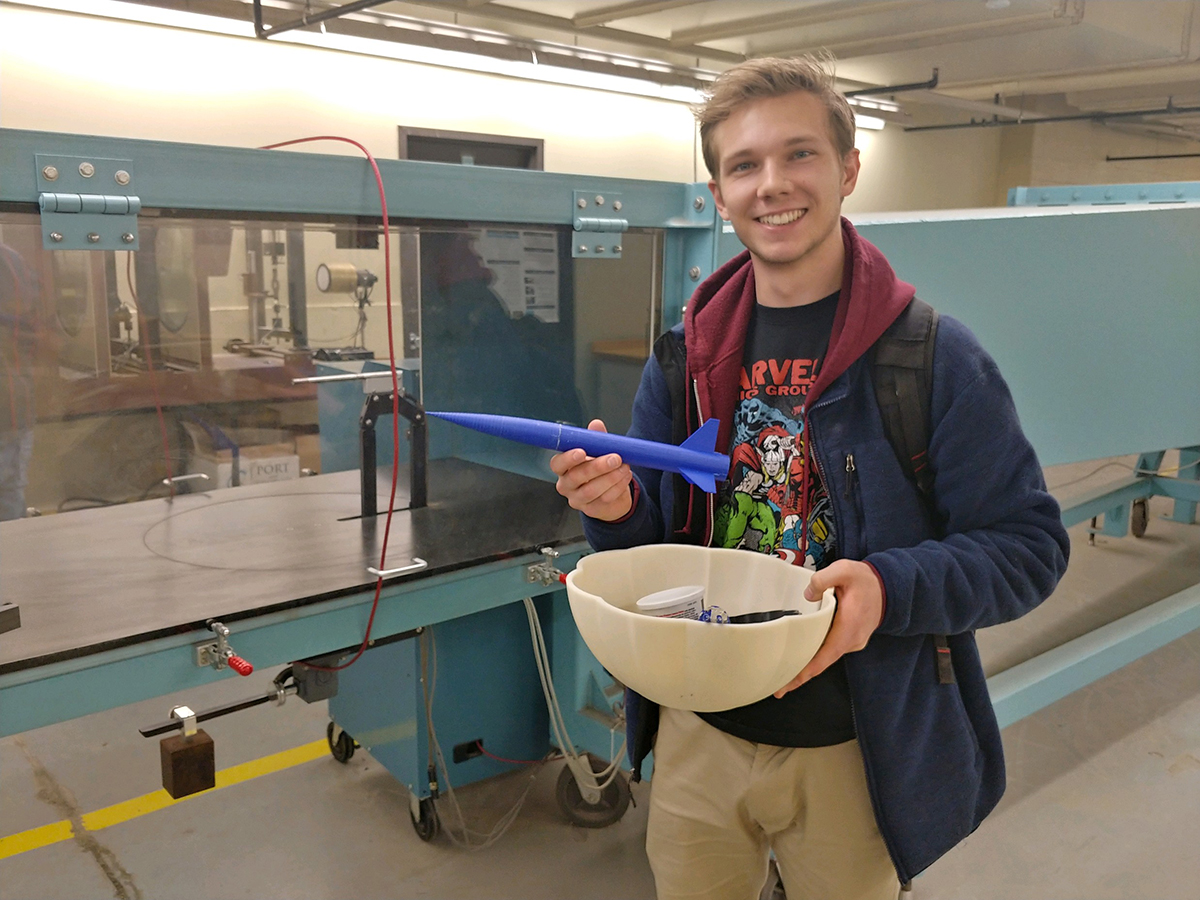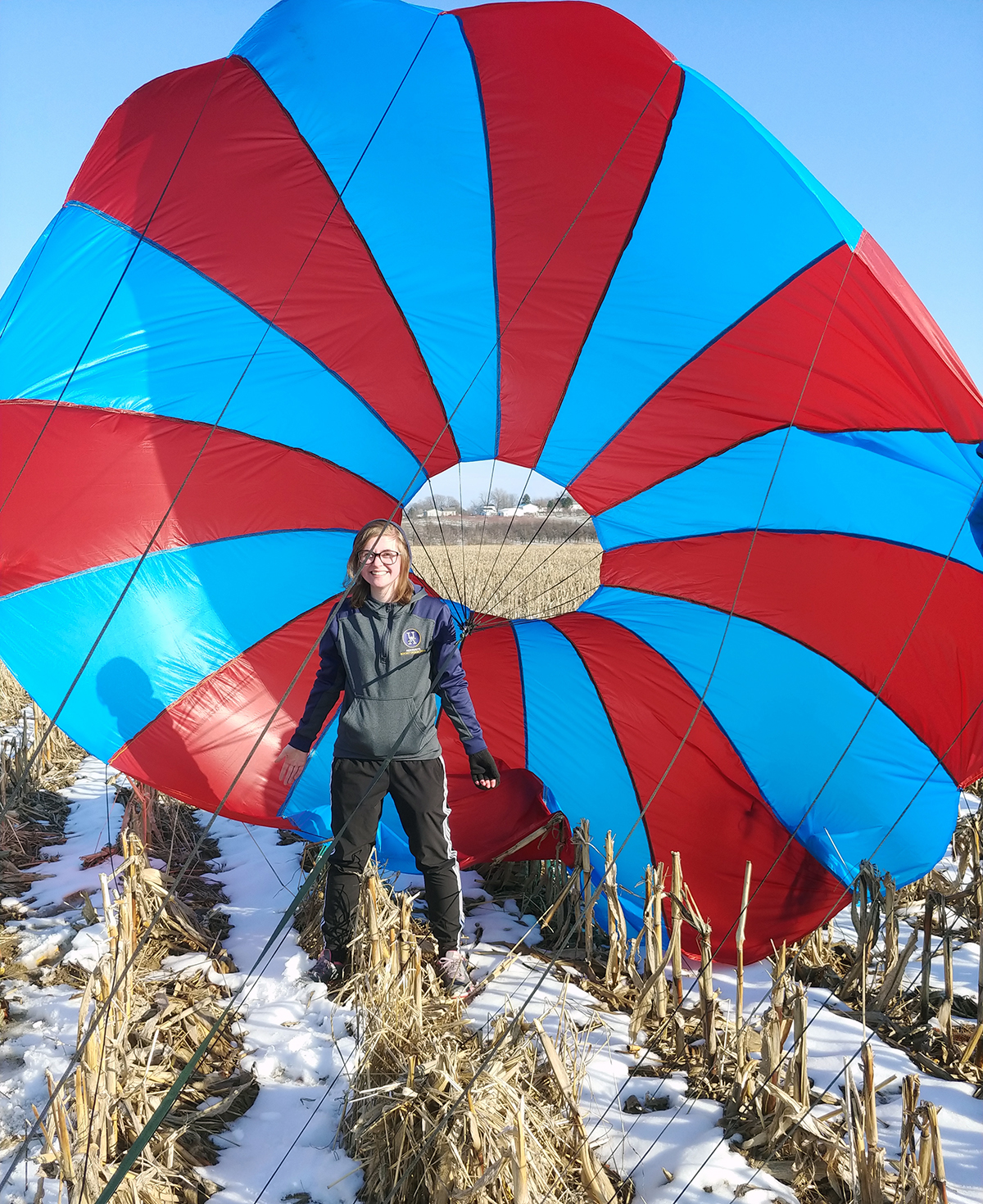Akronauts earn fourth place at 2020 NASA Student Launch Competition
The University of Akron’s student rocket-design team — the Akronauts — placed fourth overall in a condensed version of the 2020 NASA Student Launch Competition.
Although the annual launch finale event, which was to be held at the Marshall Space Flight Center in Huntsville, Ala., was cancelled due to the COVID-19 pandemic, the 54 participating teams were still able to complete most of the design, building and testing portions of the competition. The winners were announced virtually July 23 by NASA.

Akronauts officers, system leads and team members gather around the rocket at its launch vehicle test launch and payload demonstration in Amherst, Ohio, in February.
“I am so proud of everyone on the team,” says Akronauts President Emily Armbrust, a fourth-year aerospace systems engineering major from Munroe Falls, Ohio. “Everyone puts their heart and soul into the team: the countless 2-3 a.m. nights in the rocket room figuring out payload integration or body tube manufacturing, going into the machine shop last minute between classes to fix a broken screw or tap, and the long hours of competition weeks tent camping and working on the rocket out of a trailer. The list could go on.”
Rocket honors veterans
The annual NASA Student Launch Competition challenges middle school, high school, college and university teams from across the United States to build and fly a high-powered amateur rocket carrying a complex payload to more than 4,000 feet above the ground. The rocket then must descend and land safely before its scientific or engineering payload can begin its work. This year’s competition drew teams from 19 states and Puerto Rico.

Jadon Vanyo, recovery system lead, displays the 3D-printed scaled down version of the rocket and parachute to test the drag forces in the wind tunnel behind him.
It took eight months for the Akronauts to build its rocket from start to finish. Rockets typically have a nickname, but this year’s rocket went unnamed. Instead, the project itself was named Project 22 in an effort to raise awareness and honor the approximately 22 military veterans who die by suicide every day. Team member and project manager, Jon Davis, served as an aircraft electrician in the U.S. Army from 2012-2018 and headed this initiative. The team participated in the American Foundation for Suicide Prevention Out of Darkness Walk on campus and created opportunities for conversation for the cause.
This year’s competition challenged college and university teams to develop payloads to navigate to a designated sample site, retrieve a simulated sample of planetary ice, and navigate at least 10 feet away from the site with the sample stored safely aboard. The team was completely successful in completing NASA’s requirements for the payload.
Impact of COVID-19
The condensed competition included teams submitting such things as a proposal, preliminary design review and report (each over 200 pages); testing of all components and systems; final flight review and report; full-scale launch vehicle test flight, payload deployment and demonstration results. Teams normally submit reports and give presentations virtually to NASA.

Grace Phillips, Akronauts vice president, proudly stands in front of the main parachute she sewed to allow for the rocket’s safe landing back to the ground.
“Due to COVID-19, NASA truncated the competition, so we didn’t have to meet and do more work for the project at the onset of the pandemic,” says Armbrust. “They scored us on all of the previous work and reports we completed. The condensed competition didn’t limit anyone’s participation in the project. But it was unfortunate to not have the competition travel experience for new freshmen and graduating seniors.”
The Akronauts, founded in 2014, are 60 members strong with five officers and 12 system leads.
“The team has come so far in the past six years, from barely being able to fly at competition to earning third place in 2019 and fourth place this year,” said Armbrust. “All these experiences of problem solving, hand calculations and working together in time-sensitive and sometimes stressful environments brings the team together. We’re not just a design team. We have become a family going through the engineering college experience together, sharing knowledge and experiences to help each other succeed.”
Media contact: Alex Knisely, 330-972-6477 or aknisely@uakron.edu.
